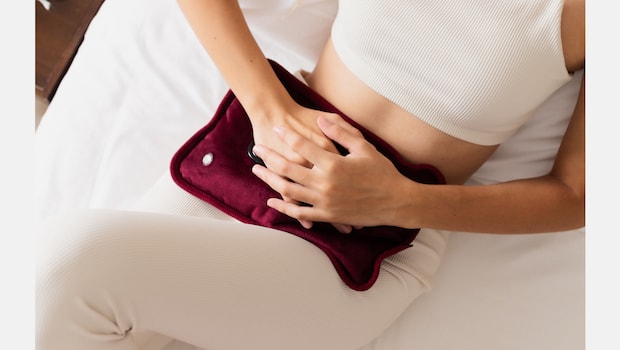Women's Health: 9 Things To Avoid For Better Health During Your Periods

Steering clear of certain foods, habits, or activities can help reduce these symptoms, stabilise energy levels, and support your bodys natural rhythm.

Making mindful choices during your cycle not only eases discomfort but also promotes hormonal balance
Avoiding certain things during your period can significantly help manage your health and ease menstrual discomfort. During menstruation, hormonal changes can cause bloating, mood swings, cramps, fatigue, and digestive issues. Steering clear of certain foods, habits, or activities can help reduce these symptoms, stabilise energy levels, and support your body’s natural rhythm. For instance, avoiding overly processed foods and high caffeine intake can reduce inflammation and bloating, while steering clear of intense workouts or stressful environments can prevent worsening cramps or fatigue. Read on as we discuss other things you can avoid during your periods for better health.
Avoid these things for better health during your periods
1. Caffeine
Caffeine can constrict blood vessels and elevate stress hormones, which may worsen menstrual cramps and increase anxiety or irritability. It also acts as a diuretic, leading to dehydration and potentially more bloating or fatigue. Switching to herbal teas like chamomile or ginger during this time can help calm your system and reduce inflammation.
2. Salty foods
Excess salt causes water retention, leading to bloating and puffiness which are common complaints during menstruation. Processed snacks, canned soups, and fast food often contain high sodium levels. Opting for whole, fresh foods and drinking more water can flush out excess sodium and help you feel lighter.
3. Sugary foods and drinks
Refined sugars can spike and crash blood sugar levels, which can intensify mood swings, fatigue, and cravings. Moreover, sugar triggers inflammation, which may worsen cramps. Choosing natural sugars from fruits or complex carbs like oats can provide sustained energy and stabilise mood.
4. Heavy, greasy foods
Fried and fatty foods are harder to digest and can increase prostaglandin production—compounds that trigger uterine contractions and cramps. These foods may also contribute to indigestion and nausea. Lighter meals with healthy fats like avocado or nuts are a better choice.
5. Alcohol
Alcohol can dehydrate you, disrupt hormonal balance, and worsen symptoms like fatigue, mood swings, and cramps. It may also affect sleep quality and intensify menstrual headaches. If you’re craving a drink, consider non-alcoholic alternatives or mocktails made with hydrating ingredients.
6. Skipping meals
Missing meals can destabilise blood sugar levels, leading to irritability, headaches, and increased fatigue. It may also worsen cravings and lead to overeating later. Eating balanced meals and snacks regularly helps maintain energy and reduces period-related discomfort.
7. Intense workouts
While gentle exercise is beneficial, overly strenuous workouts can put additional stress on your body, which may worsen cramps or cause dizziness. Listen to your body and choose low-impact activities like walking, stretching, or yoga to stay active without overexertion.
8. Smoking
Smoking can reduce oxygen supply to the pelvic area and increase the intensity of cramps. It also contributes to hormonal imbalances and can worsen PMS symptoms over time. Quitting smoking or reducing exposure during your period can significantly improve symptoms and long-term reproductive health.
9. Wearing tight clothing
Tight clothes, especially around the waist and lower abdomen, can increase discomfort and restrict circulation, aggravating bloating and cramps. Choosing loose, breathable clothing during your period allows more comfort and can help your body relax and function better.
Making mindful choices during your cycle not only eases discomfort but also promotes hormonal balance and overall well-being.
Disclaimer: This content including advice provides generic information only. It is in no way a substitute for a qualified medical opinion. Always consult a specialist or your own doctor for more information. NDTV does not claim responsibility for this information.






